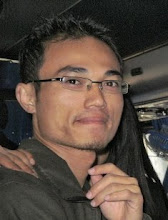I did not know the meaning of Desikottama* then. I met Prof. Kazuo Azuma at The Claridges, New Delhi, in the year 2006. As I entered his hotel room, his soft voice greeted my in fine Bengali. I was held in awe. The period was the peak of summer season and the professor appeared fragile and drained. Do you know that this season is also referred as the mango season in the northern region?
The room was cool and comfortable with a clear view of the pool. Unfortunately, the professor who was traveling alone and not in his ablest self due to health concern had to suffice with strict bed rest while I perused thru the pages of my novel and at the same time watched television on a low volume.
There were no door bells to disturb the room except when the phone jumped to life. But nobody seemed to mind it because it used to be none other than the professor’s wife. She used to telephone from Tokyo. Her voice enlivened the professor and made him pleased and at home. Very shortly, I discovered that his wife spoke Bengali also. I was enormously surprised by this old, enchanting Japanese couple. I could not help but compare the finely dressed, articulate hotel receptionists from India who wouldn't speak a word of Bengali or Sanskrit! I felt deeply drawn to the professor.
In those two days spent under his noble company, I was very happy to be able to test my elementary Japanese that I learnt at Reiyukai Foundation many years ago. Thus, he became our endeared ‘dadu’. His face brimmed with fondness and affection as I started to address him as ‘dadu’. As he regained his composure and energy, he transformed into an animated personality more than I imagined. We took part in delightful conversation, laughed, ate together and watched more TV programmes. All of us felt great like a new one-dollar bill!
Next day, my heart was overwhelmed with happiness when he called to us and explained that all of us could sleep on the same bed like a grandfather and his grandchildren. I had to check my senses: I was going to sleep on the same bed with a Japanese who saw Netaji with his own eyes! As a little boy, dadu saw Netaji in uniform. Whew! Netaji is a fable for us, a character that exists in history texts. It is natural that I had to bat my eyelids twice before believing him. But, dadu was truthful as he could only be. He recounted in front of us that one day the street was filled with a big crowd for an event where Netaji took the podium. That event is very far from now. Dadu was referring to pre-WWII era. He narrated many interesting stories about Japan, Japanese as a society and his own life’s journey into becoming a Rabindra scholar.
I love the extra ordinary person he became by embracing Kolkata and its wholesome inhabitants. General people like you and I would like to complain on Kolkata’s prickly heat, devilish rainfall, unhealthy slums, rickety infrastructure, and dismal football and so on. In an maverick style, he decided to leave behind a promising career and set out to travel far from his beloved homeland. Ever since he landed on the shore of Calcutta, he stayed immersed in the fathomless waters of Rabindra. Professor Kazuo Azuma is an eminent Rabindra scholar, well-known among Japanese society for his translation work of Rabindra masterpieces.
I am fortunate having known and met and served his feet for as long as he was in New Delhi. The days at The Claridges will remain an ever lasting memory. I’ve got substantial facts and pictures already by bits and pieces from internet; I hope to connect and plot a fuller picture of adorable ‘dadu’ in near future. My recent finding was a photograph of a group of Vishvabharati scholars and ‘dadu' is wearing a white kurta-pyjama, chappal and ‘jhola’ hung casually on his shoulder - a Japanese completely transformed to Bengali. He hums Rabindra sangeets, eyes sparkle at once upon taking Rabindranath's name on his lips; dadu accepted that his heart will sing merrily all the way home if he could die in Paschim Banga - the land of Rabindra waters!
*Desikottamma is an unique honor bestowed on persons of distinction by Vishvabharathi. It is the highest honor Vishvabharathi at Shantiniketan confers to academicians. Till date, 34 foreign nationals have been conferred the award. The Desikottama award was instituted in the year 1952.
Fyi, the word’s translated in English means ‘ideal person of the country’.
Rabibar by Tagore
Please listen Tagore's Shruti natak " Rabibar". Tagore's magical use of words and emotion made this story as oneof his best (almost like his Shesher Kabita). This drama though written almost 100 years ago but it seems it is written today such an immortal piece was created by Tagore.
Please enjoy the drama in two parts in the following link: http://calcuttaglobalchat.net/calcuttablog/2007/11/08/robibar-story-by-rabindranath-thakur-presented-by-jagannath-basu-bengali-geeti-natya/
Subscribe to:
Post Comments (Atom)


No comments:
Post a Comment